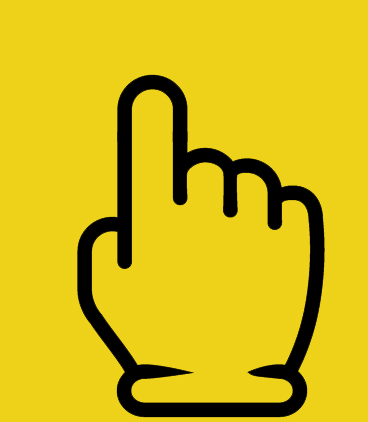
Have you ever been in a position where you were invited to a job interview but weren't feeling it? Perhaps it has to do with the company's location, the duties of the position, or the pay. Whatever the reason, how to decline a job interview can be a challenging circumstance to handle. While it's important to keep a good relationship with the business, you also don't want to waste either your own or the interviewer's time. It's important to decline a job interview in a nice and professional manner to avoid damaging relationships.
You must understand, though, that just as the interview is a chance for the employer to get to know you better, it's also a chance for you to learn more about the company you're interviewing with. You should therefore prepare some excellent interview questions to pose to potential employers.
The finest ways to respectfully decline a job interview are discussed in this article so that you can maintain your professionalism and keep all options open for potential future chances.
What is an interview?
Before we understand how to decline a job interview. It is important to understand the concept of interviews. It's a formal discussion between you and a possible employer in which you strive to highlight your greatest traits and convince them of your suitability for the position. There is nervousness, excitement, and a little bit of sweating involved, just like on a first date.
You will normally be asked a number of questions regarding your credentials, experience, and talents during an interview. The interviewer wants to learn more about you personally and determine whether you possess the skills and information required to be successful in the position. Your task is to attentively and honestly respond to these inquiries while also emphasising the traits that set you apart from other applicants.
Depending on the organisation and role, interviews can take many various shapes. Some are conducted face-to-face, giving you the opportunity to get to know your future employer personally and meet them in person. Others might be carried out by phone or video conferencing software, which can be more practical but also trickier to use.
You can introduce yourself and showcase your qualifications during the interview. You have the opportunity to convince the hiring manager that you could be the most suitable candidate while also demonstrating your passion for the position and the organisation.
An interview can also assist you in learning more about the job and the organisation, as well as figuring out whether it corresponds with your values and professional objectives.
Why Should You Decline An Interview?
First and foremost, if you determine the position is not a good fit for you, it is absolutely appropriate to decline a job interview. There are good reasons to gently decline a job interview, whether it's because of salary, location, or job description. Its always recommended to research about the company before a job interview. Instead than wasting your time and the interviewer's time, it is preferable to decline the interview.
It's crucial to remember that during a job interview, you have the opportunity to assess if the position and organisation are a suitable fit for you as well as how well your abilities and qualifications stack up to those of the interviewer. Politely declining a job interview demonstrates that you value the employer's time and aren't just there for the sake of being there.
Furthermore, respectfully and professionally declining a job interview can help retain a good rapport with the business. It doesn't necessarily follow that you won't be interested in a future chance or be able to promote the company to others even if you decide not to accept the current employment. Burning bridges could restrict your future options, therefore it's crucial to decline an interview in a way that keeps the connection intact.
How To Politely Decline A Job Interview?
It's crucial to reply to the request to decline a job interview as soon as possible. Delaying your response may cause the interviewer inconvenience because they may need to reschedule or find another qualified applicant. Quickly accepting the invitation helps the interviewer to continue the hiring process and demonstrates that you value their time.
When declining a job interview, candour is essential. Describe your reasons for declining the offer in an open and transparent manner. However, it's imperative to refrain from responding in a crude or impolite manner of how to politely decline a job interview invitation. stating "I'm not interested in the job," for instance, is preferable to stating "Thank you for the invitation, but I have decided to explore other job opportunities that more closely align with my career goals."
It is important to know how to decline a job interview without burning bridges. Display your thanks and gratitude for the invitation to the interview is an important part of how to decline a job interview. Thank the interviewer for taking the time to study your qualifications and consider your application. Expressing your gratitude might support maintaining a great relationship with the employer, even if you are not interested in the position.
Even if you aren't interested in the open position, it's crucial to keep a good relationship with the employer even after declining a job interview. Offering to stay in touch and expressing your interest in any potential future possibilities is one approach to do this. This leaves the door open for potential future collaborations and demonstrates your worth for the organisation and its mission.
As you develop your professional network and maybe open up new career prospects, offer to stay in touch. There might be other jobs or initiatives that meet your interests and professional ambitions even if the current position isn't the best fit for you.
Your chances of being given consideration for these upcoming opportunities rise if you keep a good working relationship with the organisation. Be sincere and clear in your goals when proposing to stay in touch. Ask if there are any future events or projects that you may join in, and then consider highlighting a particular subject or project that interests you. This demonstrates your initiative and commitment to the vision and values of the organisation.
It's crucial to take advantage of your offer to stay in touch. Think about adding the recruiting manager or recruiter to your LinkedIn network or dropping them a line on occasion to inquire about any recent advancements at the business.
BONUS TIPS TO ACE JOB INTERVIEWS
Want to conquer job interviews like a pro? Look no further than Interview Experts! Our interview preparation service is here to transform your interview skills and help you land the job of your dreams. Gain the competitive edge you need with our comprehensive Interview Bootcamp covering everything from resume optimization to mastering tough interview questions. Get ready to showcase your talents and unlock a world of career opportunities. Join Interview Experts today and take your interview skills to new heights.
Final Thoughts On - How To Decline A Job Interview
Although turning down a job interview can be challenging, it's vital to keep in mind that it's a necessary step in the job search process. By acting in a respectful and professional manner, you can preserve goodwill and possibly create chances for the future.
Be sure to express your decision to decline a job interview clearly and promptly. Give a sincere explanation for your decision to decline and thank the company for their time and thoughtfulness. Keep in mind that being polite and respectful in your contact will enhance your credibility as a professional.
It's crucial to offer to stay in touch and demonstrate an interest in any potential future chances. Your likelihood of being given consideration for upcoming positions or partnerships rises if you keep a good working relationship with the organization. Whether you suggest joining on LinkedIn or regularly checking in to see if there are any new advancements at the company, follow through on your promise to stay in touch.
Hope you liked this article on - How to politely decline a job interview.
If you have any queries or questions, you can reach out at info@interview-expert.com.
For more guidance on interview preparation, contact Interview Expert.

